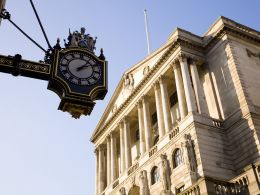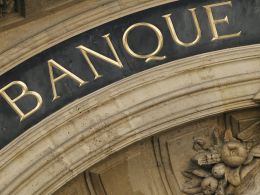
An Early Blockchain Experiment by Global Banks Is Revealed
Blockchain startup R3 has revealed the completion of a new test that involved a total of 11 banks connected to a peer-to-peer decentralized distributed ledger. The experiment is likely to figure among the earliest examples of multiple banks using a distributed ledger to exchange value, successfully. In a press release today, R3 co-founder Todd McDonald has announced the completion of a distributed ledger experiment where 11 global banks participated in the simulation of exchanging trades and value on an R3-managed distributed ledger. Each bank was connected to a private, R3-managed....
Related News
According to an IBM survey that gathered insights from 200 global banks, 15% of those banks could be running blockchain solutions as early as 2017. While 2016 is the year that has – already – seen blockchain prototypes tested and trialed, 2017 will be the year banks start putting blockchain solutions into implementation, according to a new IBM study. “Hurtling” Toward Blockchain. Released today, the study, “Leading the Pack in Blockchain Banking: Trailblazers Set the Pace”, conducted by IBM Institute for Business Value, summed up the interest in blockchain among the 200 banks it surveyed,....
Arguably, the most talked-about private blockchain consortium around has just had twelve additional banks signing up as members to the R3-led group of global banks looking to tap into and experiment with blockchain technology for securities settlements and payments. New York-based Fintech startup R3 has added 12 more banks as members to its blockchain consortium. The startup also revealed that it is welcoming financial firms that aren't banks such as exchanges, clearing houses, standards bodies and infrastructure companies from Q1 2016. The latest additions to the consortium include: BMO....
The central banks of France and Singapore are working on a digital currency interoperability system supporting multiple global CBDCs. Financial authorities in France and Singapore are actively exploring the cross-border applications of central bank digital currencies (CBDCs).In a joint announcement on Thursday, the Bank of France and the Monetary Authority of Singapore (MAS) said that they successfully completed a whole cross-border payment and settlement experiment using CBDCs and blockchain technology.The CBDC experiment was conducted with support and expertise from JPMorgan's digital....
Canada’s central bank, the Bank of Canada, and five other Canadian banks (like a growing number of banks around the world) are experimenting with blockchain technology and a possible digital dollar as the growing demand for digital fintech payment systems puts the squeeze on the traditional banking sector. At a recent IMF/World Bank conference hosted by the U.S. Federal Reserve, an estimated 90 central banks, including the Bank of Canada, came forward to talk about their research into and experiments with distributed ledger technology (DLT), the blockchain and digital currencies. The big....
The Banque de France, the country’s central bank, has revealed details about a discreet blockchain experiment that was put to the test back in October 2016. In a release [PDF] late last week, the bank revealed that it had tested blockchain technology to understand the consequences of decentralizing ledger managing functions of SEPA credit Identifier, which is essentially a simplification of cross-border Euro transfers within the Single Euro Payments Area (SEPA). The experiment was conducted in partnership with Parisian Fintech startup Labo Blockchain as well as the Caisse des Dépôts et....





